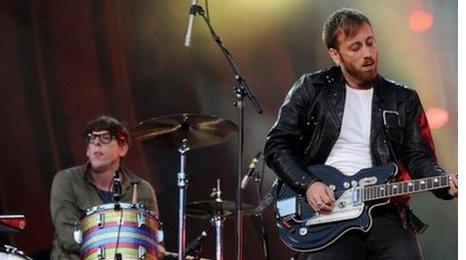The Black Keys on new album, rabid fans and Lana Del Rey
- Published
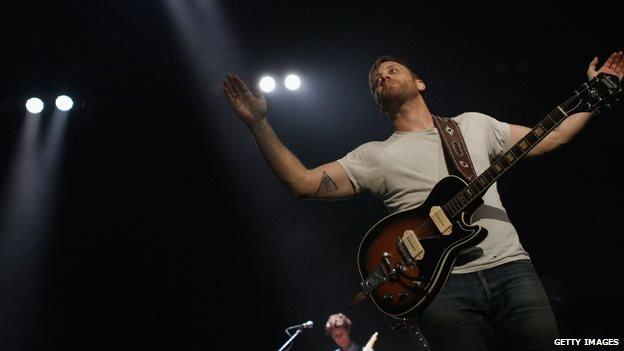
"I feel like we have another album nearly finished," says The Black Keys' frontman Dan Auerbach
"The fact we get played on the radio now blows our minds," says Patrick Carney, drummer of The Black Keys.
It's taken 13 years for him and singer Dan Auerbach to become playlist fixtures, thanks to their streamlined brand of garage glam rock.
Formed in the unfashionable town of Akron, Ohio, they played their first gig to eight people, but by 2012 were selling out two consecutive nights at the O2 arena.
But success took a toll - "we were this-is-your-brain-on-drugs fried," Auerbach said, external - and there were several false starts on the road to their eighth album, Turn Blue.
Written in the midst of Auerbach's very public divorce, external from Stephanie Gonis, in which he gained custody of their six-year-old daughter, it is a much darker and heavier album than their breakthroughs Brothers (2010) and El Camino (2011).
Speaking exclusively to the BBC, the band discuss Turn Blue's magical properties, being attacked on stage, and how they came to work with Lana Del Rey.

The album opens with Weight of Love, which is almost seven minutes long. Is it true that was the first song you recorded?
Dan: It wasn't really the first.
Patrick: We basically made two albums. We recorded 30 songs.
Dan: Weight of Love was in the middle of the sessions but, when we finished it, we all unanimously agreed it should be the first song on the record. We liked the journey it took you on, we like how it started so hush. It demands your attention in a different way to any of our other records opening tracks.
It's led to the perception this is your "psychedelic album". Is that a fair assessment?
Dan: It's almost seven minutes of psychedelia.
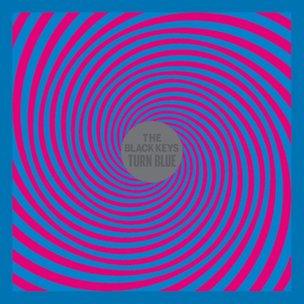
The album's artwork continues the psychedelic theme
Patrick: Expansive is the word I would use, because it starts off with this tiny little filtered acoustic guitar and it basically touches on every style of rock music we've played and more, throughout the whole album. If you use that definition of psychedelic then, yeah, I guess it would be.
It feels like a record that will be more rewarding the more you listen to it.
Patrick: Yeah, you get your money back after the tenth listen, so it is definitely more rewarding the more you play it.
Turn Blue is quite a dark song - what made it appropriate as the title track?
Dan: We just liked the phrase, first off. We liked the association with Ghoulardi, external, this kind of weird freak from Ohio from the early 60s - that was a phrase he used to use. And then so much of the album was lyrically melancholy and introspective and personal, so it was very blue. I guess it just made sense.
We also liked how we could translate Turn Blue into artwork for the cover.
The cover actually feels like you're staring into the eyes of Kaa from The Jungle Book.
Dan: Yeah, you should be able to stare at it and it'll start spinning.
Patrick: My brother did the artwork. He went to the factory in Los Angeles where they made the jackets and they figured out a way to give the impression it's moving. I'm sure it's highly toxic.
So you get your money back after 10 listens, but the album cover is poisonous?
Dan: You'll go blind.
Patrick: And if you throw it out, it will ruin your water supply within eight miles.
It's a health and safety nightmare.
Patrick: Well, it's actually a scheme to keep our legacy around. You can never throw the album out.
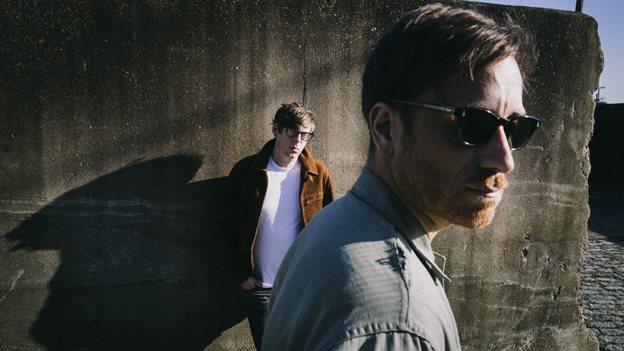
The band will headline the Latitude Festival later this year
Obviously, the album came off the back of a very tumultuous time in Dan's personal life. How did that affect the band?
Dan: It was just me dealing with my own break-up and being a single father and working full-time. The year was insane. Really. It was the best year and the worst year all wrapped into one. And that is where the album came from. It was in the midst of all of that.
Patrick: I had a really heavy year, too. My Xbox gamer score fluctuated drastically.
Dan: So, yeah, we both went through very difficult times.
Was it tough to commit all those experiences to tape? Were you not tempted to keep it private?
Dan: I couldn't help it, honestly. I was so in the middle of all of it. I was taking care of a six-year-old full time whilst in the middle of recording the album, living in a one room apartment, getting her ready for school in the morning and putting her to bed at night - seven days a week, for eight months. It was too full-on for me to be thinking about anything else.
It's hard enough to raise a child working a regular job.
Dan: It's kind of horrifying, to be honest. It's been a difficult year, to be sure.
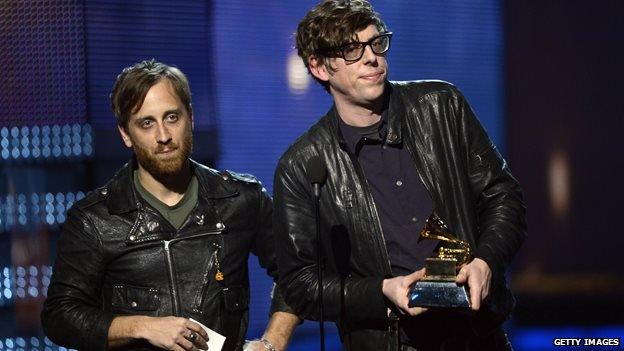
The band won four Grammys in 2013, including best rock album for El Camino
In one interview you said you felt freed of the need to write hit singles, external. Why was that?
Dan: We never felt that we had to write hits. We made five albums without once ever thinking about a single and then we wrote Tighten Up, external and it got played on radio and changed our career. So from then we started looking at it as a challenge.
So when we were writing Fever, external, we wanted it to be catchy. We weren't thinking "this is a radio hit" but it was like "the melody is catchy, let's do things that would make it even catchier."
There's a strange snobbery in rock about having hit records - where do you think that comes from?
Dan: That culture, of looking at catchy music as a negative thing, is weird. It has nothing to do with me, or the music I was into growing up. The Stones and the Beatles only tried to write hits. Every Motown song, every Credence Clearwater song - they were trying to write hits.
Patrick: As soon as you start mixing up politics and some sort of ethical code in music, you've got it all wrong. And the minute a band thinks they deserve anything they're not getting, that's also completely stupid. Any band that is playing a gig anywhere is lucky. Dan and I are super stoked to be playing the Latitude Festival. Every gig might not be a unique experience, but it's fun and we respect it.
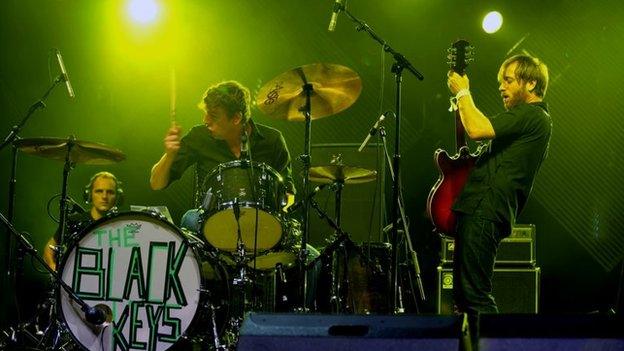
The band's hits include Gold On The Ceiling and Fever
When you're preparing for a festival like that, do you think about how you change the set, do you worry about the size of the audience?
Dan: How big is the festival? I don't know.
About 40,000 people, give or take.
Patrick: Well, we played Reading and Leeds two years ago, ahead of the Foo Fighters, and that was a lot of people.
Dan: But it gets to a point, you can't tell the difference between 20,000 and 70,000, really. You can't see those people. Especially at night, when the light is in your eyes.
What's the craziest crowd you've had?
Patrick: Leicester, England. 2003.
What happened?
Patrick: Dan got attacked by a middle aged woman. A potato chip factory worker.
Dan: She grabbed me mid-song. She jumped on stage, long nails, grabbed me in the back of the neck, scraped my neck, banged into my guitar. And there was no exit off the stage, you had to walk through the audience. It was really awkward.
How did you find out she worked in a crisp factory?
Dan [laughing]: We're making that part up.
Patrick: I don't know, she smelled like salt and vinegar to me.
So, you recorded 30 tracks last year, and the album has 11. What's happened to the other 19?
Dan: Some of them are great. I feel like we have another album nearly finished. I hope it'll come out. I think we'll release most of the songs we recorded.

Auerbach has produced Lana Del Rey's second album, Ultraviolence
And you've also produced Lana Del Rey's new album, which is out in June. How was that?
Dan: It was interesting. It was great. She's an amazing musician, and she wrote some great songs and came to the studio in Nashville. We planned to record for three days and after the second day we extended it, and it became two weeks. I filled the studio with musicians I knew and we finished an album.
Is the single, West Coast, representative of how the rest of the album sounds?
Dan: Yes and no. It's a live band experience, with Lana singing. She sings live on 99% of the album, which was really cool. There was a seven-piece band playing in the live room and she's in the next room with a handheld microphone singing live. It was very different from her first record.
How do you organise the studio when you're recording? Any superstitions or rituals?
Patrick: A bowl of almonds. Water. Coffee.
Dan: It doesn't matter, it's so unimportant. When I worked with Dr John, he lit candles to get the spirits out of the room, but I don't know that the record would have been any different without the candles. It was fun watching him do it, but we don't have any rituals other than showing up approximately when we're supposed to.
Patrick: Although we do always have a priest in the studio.
Dan: But that wouldn't be considered a ritual, right?
Turn Blue is out now on Nonesuch records.
- Published6 March 2014

- Published28 November 2012
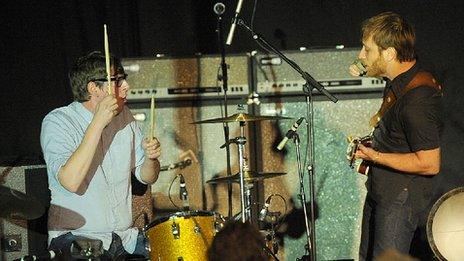
- Published25 March 2014
